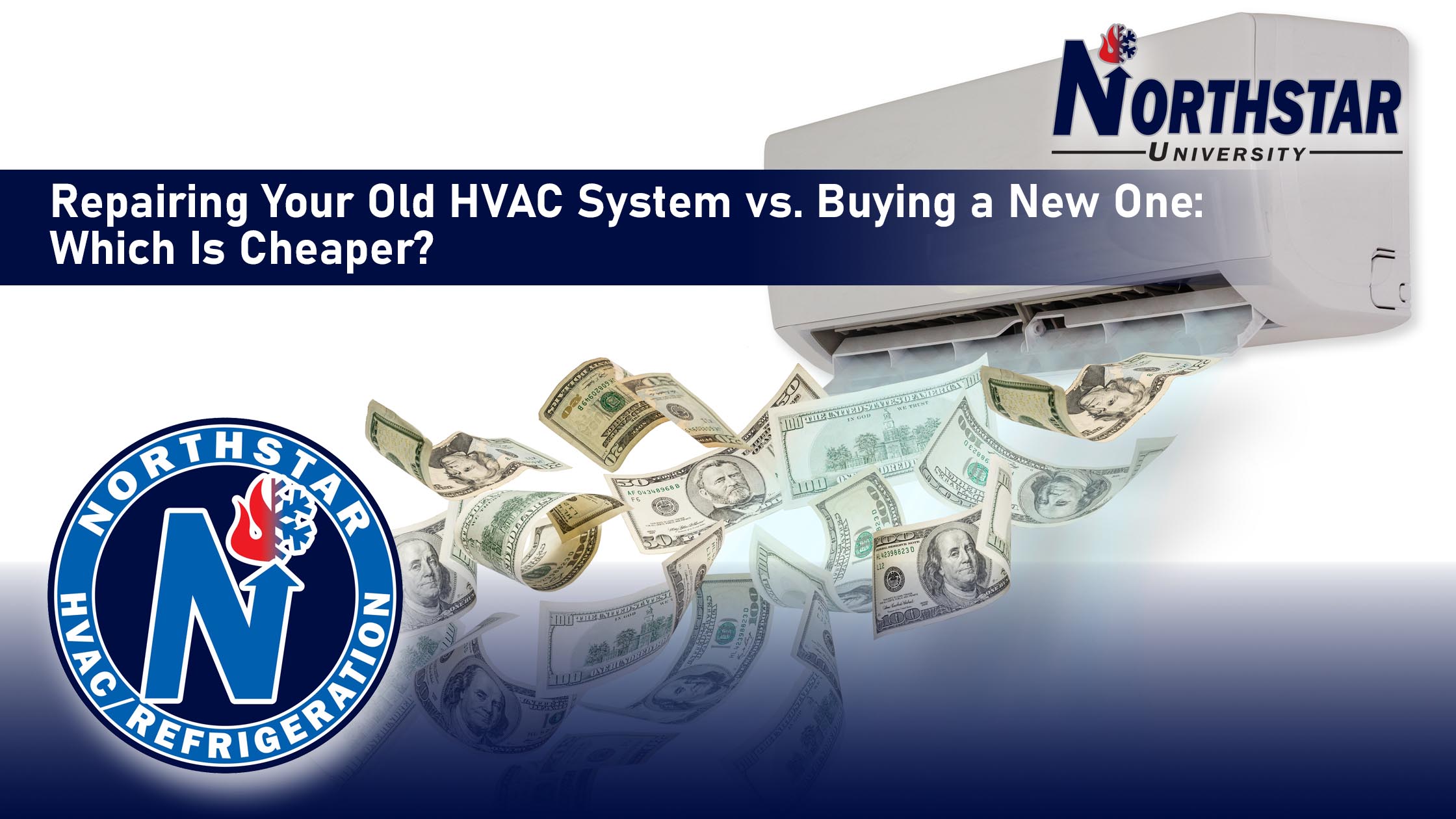Repairing Your Old HVAC System vs. Buying a New One: Which Is Cheaper?
When faced with an aging HVAC system, many business owners and homeowners are confronted with the question: should I repair the old system or invest in a new one? This decision involves weighing the immediate costs against the long-term benefits, including energy efficiency, reliability, and overall cost-effectiveness. Here, we’ll explore the pros and cons of repairing versus replacing your HVAC system to help you make an informed choice.
The Case for Repairing Your Old HVAC System
Lower Initial Costs
- Pro: The most obvious advantage of repairing an existing HVAC system is the lower upfront cost. If the system requires only minor repairs or maintenance, this can be a cost-effective solution in the short term.
- Con: However, frequent repairs can add up over time, potentially surpassing the cost of a new system, especially if the HVAC system is near the end of its lifespan.
Familiarity with the System
- Pro: You and your maintenance team are already familiar with your current system, including its quirks and specific needs. This can make repairs more straightforward and less time-consuming.
- Con: As systems age, they often require more specialized repairs, which can be harder to manage with older components that may be difficult to source.
Temporary Solution
- Pro: If you’re not ready for a large capital expenditure, repairs can keep your system running while you plan and budget for a new system.
- Con: This approach is only a stopgap measure. Continuing to repair an outdated system can be a false economy, as it may only delay the inevitable replacement while increasing your operating costs.
The Case for Buying a New HVAC System
Long-Term Cost Savings
- Pro: New HVAC systems are significantly more energy-efficient than older models, which can lead to substantial savings on your energy bills. Over time, these savings can offset the initial investment in a new system.
- Con: The upfront cost of a new HVAC system can be high, which may be a deterrent for some businesses or homeowners, especially if they haven't budgeted for a replacement.
Increased Reliability and Comfort
- Pro: New systems come with warranties and the latest technology, providing greater reliability and more consistent indoor comfort. You’re less likely to experience unexpected breakdowns and costly emergency repairs.
- Con: The process of selecting, purchasing, and installing a new system can be time-consuming and may require temporary disruption to your operations.
Environmental and Efficiency Benefits
- Pro: Modern HVAC systems are designed to meet stricter environmental standards, often using refrigerants with lower global warming potential and achieving higher Seasonal Energy Efficiency Ratios (SEER). This not only reduces your carbon footprint but also may qualify you for rebates and incentives.
- Con: If your current system is relatively efficient and well-maintained, the environmental benefits of a new system might be less pronounced, making it harder to justify the expense purely on environmental grounds.
Long-Term Investment
- Pro: Investing in a new HVAC system can increase the value of your property and improve its marketability, particularly if energy efficiency is a key concern for prospective buyers or tenants.
- Con: The return on investment can take several years to materialize, depending on your usage patterns and local energy costs.
Factors to Consider When Making Your Decision
Age of Your Current System
- HVAC systems typically last between 10 to 15 years. If your system is within this age range and requires significant repairs, it may be more cost-effective to replace it rather than continue to pour money into repairs.
Cost of Repairs vs. Replacement
- As a rule of thumb, if the cost of repairs exceeds 50% of the cost of a new system, it’s generally recommended to opt for replacement. This is particularly true if your system is nearing the end of its expected lifespan.
Energy Efficiency
- Older HVAC systems often operate at lower efficiency levels, leading to higher energy costs. Upgrading to a newer, more efficient model can lead to significant savings over time, making the upfront cost more manageable in the long run.
Rebate Eligibility
- When purchasing a new HVAC system, you may be eligible for rebates and incentives through programs like Mass Save. These financial incentives can help reduce the initial cost of a new system, making it a more attractive option.
Conclusion
Deciding whether to repair your old HVAC system or invest in a new one is a complex decision that depends on various factors, including the age of your current system, the cost of repairs, and your long-term energy goals. At Northstar Refrigeration, we can help you evaluate your options and choose the solution that best meets your needs. Whether you’re considering a simple repair or a full system replacement, our team is here to guide you through the process and ensure you get the best value for your investment.
Contact us today at (508) 888-3692 to discuss your HVAC needs and learn how we can help you achieve optimal comfort and efficiency for your business.
(508) 888-3692
www.northstarhvacr.com
